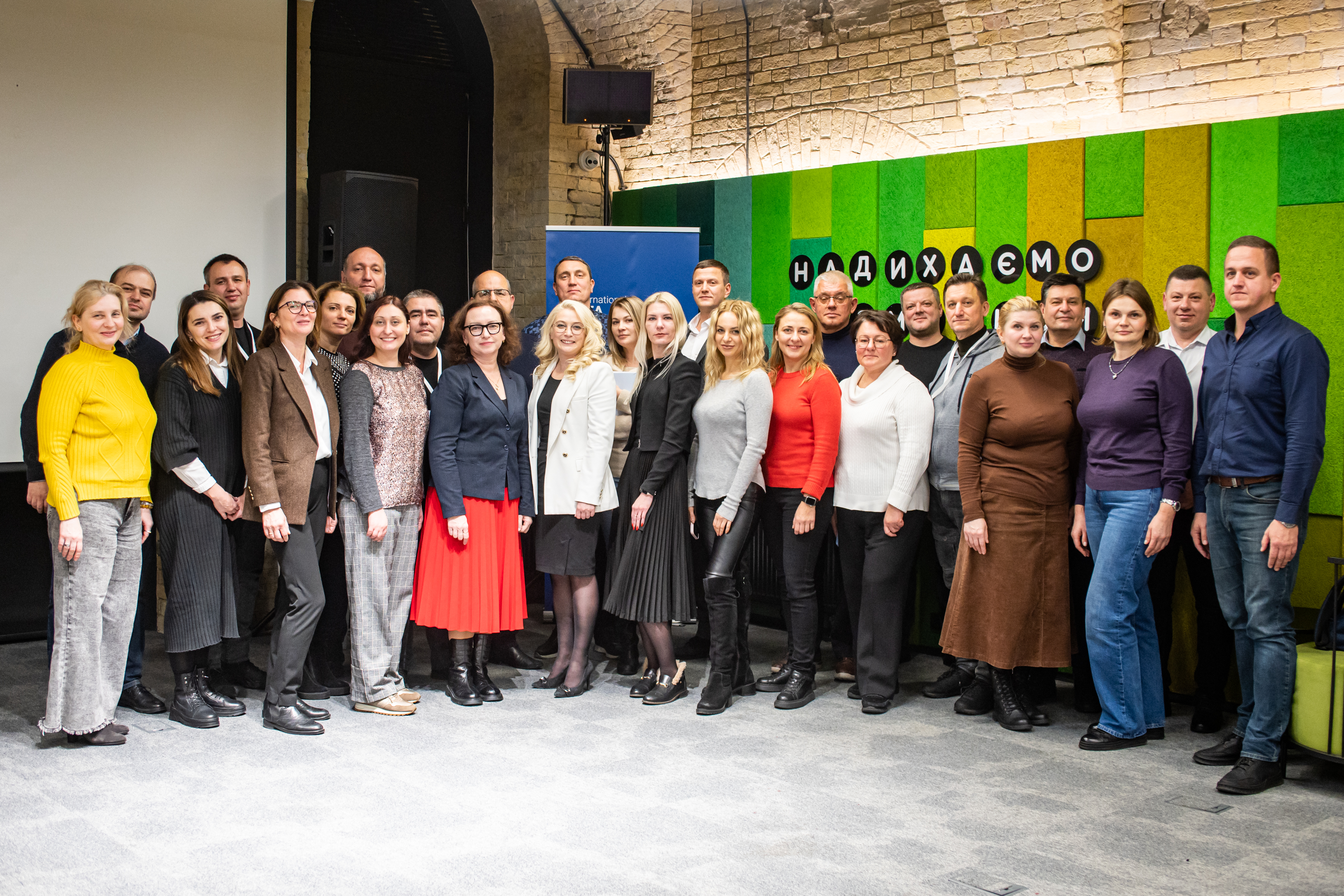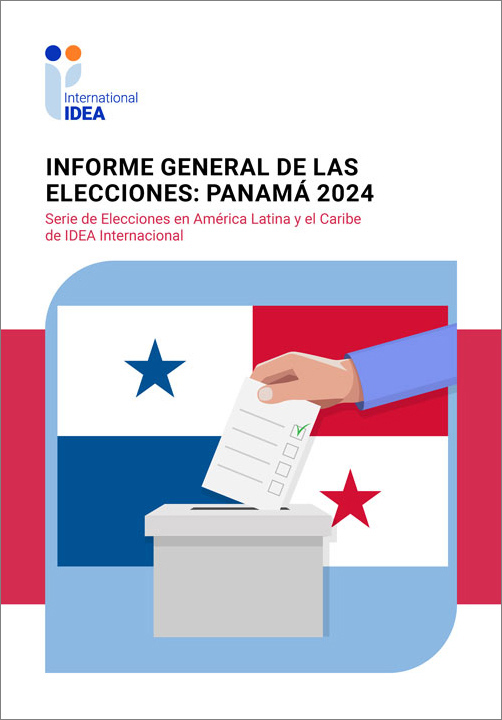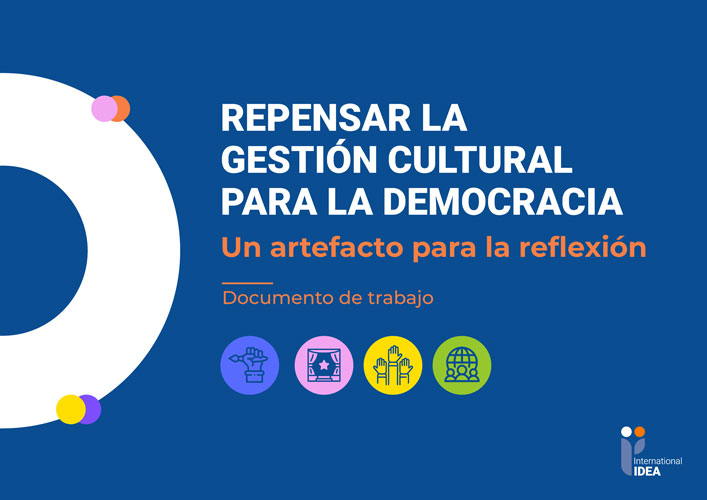This publication is an in-depth analysis of the Bolivian constitutional project of 2008.
Search
Region
Country
Type
Ágora Democrática es un programa conjunto del Instituto Internacional para la Democracia y la Asistencia Electoral (IDEA Internacional) y del Netherlands Institute for Multiparty Democracy (NIMD).
This book presents a brief history of past constitutions in Nepal from the perspective of constitution making, and a more detailed examination of the substance of the 1990 Constitution.
It identifies some of the proposals and controversies surrounding political reform and references the relevant experience of other countries.
La (re)configuración del campo político nacional con escenarios territorialmente diferenciados y renovados actores, aparecen como un nuevo dato del proceso de transformación del país.
El Programa de Fortalecimiento Democrático, iniciativa conjunta del PNUD Bolivia y el Instituto Internacional para la Democracia y la Asistencia Electoral (IDEA Internacional), con el apoyo de la Agencia Sueca de Cooperación Internacional para el Desarrollo (ASDI), organizó el “Taller Internacional sobre Experiencias de Construcción Partidaria”, que tuvo lugar en la ciudad de La Paz los días 23 y 24 del mes de julio de 2007.
En el momento actual, el Ecuador está viviendo un tiempo de cambios signado por la voluntad propia y soberana de su pueblo que busca redefinir las reglas de la convivencia social y política, así como repensar y reestructurar las bases de la institucionalidad vigente, todo con el objeto de constituir un Estado plurinacional con una perspectiva de equidad, justicia social y bienestar para las mayorías, hasta ahora postergadas.
Con la publicación de este libro IDEA Internacional pone a disposición de todos aquellos interesados en la política de los países andinos, un rico y abundante material sobre los políticos de esos países.
El libro contiene semblanzas y entrevistas tanto a los mas importante candidatos a la Presidencia de la Republica Bolivia, Colombia, Ecuador y Perú, como aquellos que tiene un papel importante en la vida política nacional.
Well-functioning political parties are essential components of democracy. They organize voters, aggregate and articulate interests, craft policy alternatives, recruit and socialize new candidates for office, set policy-making agendas, integrate disparate groups and individuals into the democratic process, and provide the basis for coordinated electoral and legislative activity.
Con la publicación de este manual, IDEA Internacional pone a disposición de los y las dirigentes y militantes de los partidos políticos una herramienta que les permitirá conocer y consultar estrategias concretas y replicables para avanzar en la búsqueda de una igualdad efectiva de las mujeres al interior de las organizaciones partidarias y en el acceso a cargos de poder y representación.
La presente obra tiene como objetivo reunir, sistematizar, analizar y divulgar las características principales de los procesos de reforma política y electoral en los dieciocho países de América Latina entre 1978 y 2007, en el marco de la tercera ola democrática.
Busca, asimismo, identificar las principales tendencias de reforma, los temas abordados en el proceso reformador y los que aún se encuentran pendientes de regulación.
‘Challenges to Democracy Building: A Seminar to Inspire a New Swedish Policy” was held in Stockholm, Sweden in May 2007.
It was organized by the Swedish Ministry for Foreign Affairs, through the Swedish Ambassador for Democracy, Maria Leissner, in cooperation with International IDEA.
International IDEA began to address the relationship between democracy and diversity management at a round-table event held in Oslo in June 2007 in tandem with the annual meeting of its Council of Member States.
Nepal in Transition: A Study on the State of Democracy presents major findings of a survey conducted in April 2007 by the Nepal Chapter of the State of Democracy in South Asia and International IDEA.
The findings indicate a shift in the people’s perspective compared to an earlier survey conducted in 2004.
This report America examines the progress made in women’s participation at all levels of public and party decision-making in the three decades since the start of the third wave of democratization in Latin America, drawing on data from 18 countries in the region.
In some circumstances, traditional mechanisms can complement conventional judicial systems and provide the potential for promoting justice, reconciliation and a culture of democracy.
Constitutions are legal texts and must be written in a style that is objective, clear and precise.
To reflect the intentions of the law makers, drafters of constitutions and other laws must understand the full meaning of legal terms and the implications that the words used will have and then use the clearest words and formulations consistently.
El presente módulo tiene como finalidad brindar información sobre los alcances del enfoque, de género, cómo entenderlo en el marco del proceso de descentralización de la gestión pública y qué instrumentos pueden ser usados para aplicarlo y promoverlo desde los gobiernos regionales y locales.
El currículo también incluye:
Party assistance has been part of international cooperation since the 1950s. Since then it has expanded steadily, both in terms of funding and the number of actors involved. Nonetheless, party assistance lacks coherent standards and principles for determining what projects should achieve, how appropriate activities can be identified, and how their impact can be measured.
The constitutions of many countries guarantee the right to vote for all citizens.
However, in reality, voters who are outside their home country when elections take place are often disenfranchised because of a lack of procedures enabling them to exercise that right.
Democracy is asked to do more than just provide representation: in many instances it is expected to be the vehicle for ensuring that social needs are met and human security is guaranteed.


